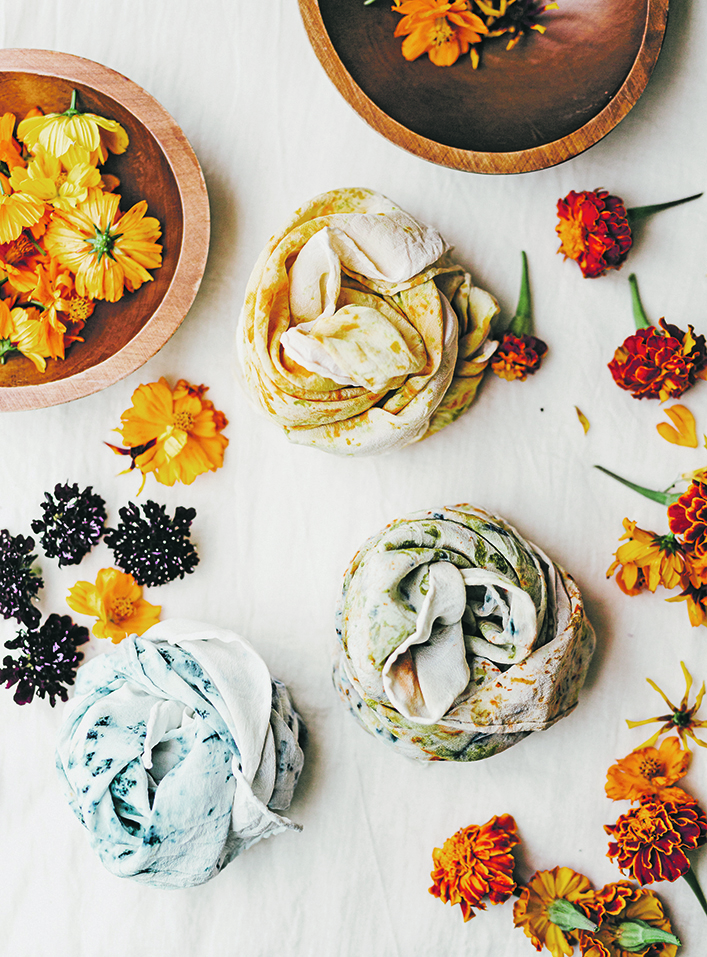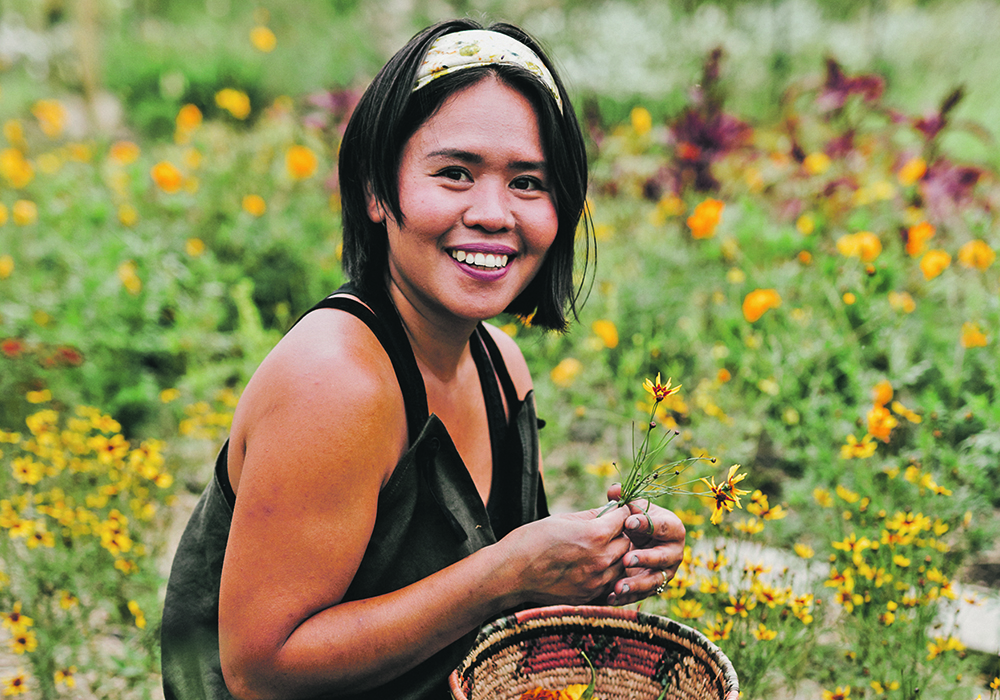Masagana means abundant, plentiful and prosperous in Tagalog and this word reflects Lourdes Still’s wish for her growing business.
Masagana Flower Farm and Studio is on a rural property near La Broquerie, Man., and is owned by Still and her husband.
Here, Still gradually expanded her U-pick flower farm and opened her new studio, in which she hosts workshops on using flowers she grows to create natural dyes. In what she has named the Tinta Experience (tinta means a variety or shade of a colour in Tagalog), Still offers guests the chance to design unique patterns on silk and cotton fabric using dye from dried flowers.
“Wearable art is a tangible memory,” she said. “It’s also about spending time with friends who are looking for a new experience.”
Still said she never expected to operate an agri-tourism business when she was growing up in the Philippines. She and her family lived in Manila, but she was able to travel with her grandmother about three hours by bus to visit relatives in the countryside. They grew rice until the after-effects of a volcanic eruption in 1991 led them to switch to running a fresh-water fish farm.
“This was my introduction to farm life.”
She earned a degree in nutrition and dietetics at a university campus specializing in agricultural and forestry science and research. When she moved to Manitoba in 2009, her focus was on working at a job that would enable her to financially help her family in the Philippines.
“Owning a garden wasn’t in the plan,” she said.
Unfortunately, her degree and work experience weren’t recognized in Canada and, she said, the steps required to gain accreditation here were too costly.
While living in an apartment in Winnipeg, Still tried growing flowers on her balcony. She soon realized Manitoba’s climate severely limits the growing season for outdoor plants.
After marrying, Still and her husband turned some of what was then a large lawn on their property into a vegetable garden.
“We realized the lawn could be turned into something more beneficial.”

Between 2016 and 2018, they expanded the plot and added a 1,200 sq. foot flower garden.
Still said they sold cut flowers at farmers markets and offered an annual U-pick. Gradually, she met other local growers and crafters committed to sustainability. In early 2019, she attended a workshop on natural dyes held at Long Way Homestead, a sheep farm and wool mill in eastern Manitoba. Still said she was amazed to discover what can be done with natural dyes. She was also inspired by Long Way’s owner, Anna Hunter, who advocates for natural fibre use and operates a successful rural business.
In 2019 and 2020, Still sold some of her flowers through a community-supported agriculture set-up and also offered U-pick opportunities and garden tours — safe activities during the pandemic. She began focusing on growing marigolds, Japanese indigo and scabiosa to dry and use for natural dying.
Her zeal to further expand was sparked by training provided by Eastman Tourism to assist local entrepreneurs in developing agri-tourism ventures.
It also gave her the push to come up with her Tinta Experience concept.
“This showed me how to differentiate myself as a flower farmer.”
Construction of her Studio-in-the Woods was completed in June, providing space for her natural dying and craft workshops, as well as for production of her own natural dyed silk scarves and pillowcases.
She sells her work online and at seasonal craft shows such as Scattered Seeds held at Winnipeg’s Red River Exhibition Park and the Winnipeg Art Gallery’s craft sale.
Still was excited to participate in the craft shows that restarted last year.
“It was fun to meet people who were following me online. The markets got me invigorated again.”















